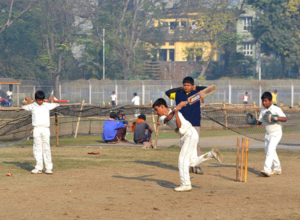With sporting industries across the world booming in terms of viewership and revenue, competition is at an all-time high and there has been a noticeable emphasis on development at the grassroots level. Athletes are increasingly being recruited from a very young age, as teams and organizations have realized the long-term reward of nurturing and promoting young talent. From a youth-athlete’s perspective, the allure is obvious as well; hone your craft from a young age while receiving remuneration and other tangible benefits (such as schooling, nutrition plans, etc.) from the organization that recruits you. However, the enforceability of such contracts entered into with minors is a debated issue. This article will discuss the ambiguity and infirmity under Indian contract law vis-à-vis minor contracts, and its implications in the sporting realm. I shall also point to certain features under the United States’ and the United Kingdom’s contract law jurisprudence, which, I contend, could serve as valuable road-maps for the Indian system to follow.
Position under Indian Contract Law
Section 11 of the Indian Contract Act (“the Act”) states that to be competent to contract, a person must have attained the age of majority. As per the Indian Majority Act, 1875, the age of majority in India is 18 years. Read together, it is obvious that a person under the age of 18 is not ‘competent’ to contract under Indian contract law. The ambiguity however arises from the absence of any provision under the Act putting forth the ramifications of entering into a contract in contravention of Section 11.
The Privy Council was tasked with resolving this vagueness in the seminal case of Mohori Bibee v. Dharmodas Ghose,[i] where the dispute pertained to the validity of a mortgage deed executed by a minor in favor of a money-lender. The minor contended against the enforceability of this agreement, claiming that he was not competent to enter into a valid contract under the Act. A connected issue was the possibility of restitution under Sections 64 or 65 of the Act, which mandate the restitution of any benefit received under a voidable or void contract respectively. Essentially, the Privy Council had to determine whether (a) the mortgage-deed was valid and enforceable, and (b) whether the money-lender could seek reimbursement of the money advanced by him to the minor in pursuance of the mortgage-deed. It was held that contracts entered into with a minor would be void ab initio, which could not even be deemed to be contracts within the meaning of the Act in the first place. Accordingly, the enforceability of minors’ contracts was completely rejected, and even restitution under Section 65 was denied, as the Privy Council asserted that ‘voidness’ envisaged under this provision presupposes the existence of a contract (while, as pointed out, an agreement with a minor is never deemed to be a contract from the offset). This position has been reaffirmed by Indian courts time and again since, with the Supreme Court following this rationale even in the recent case of Mathai Mathai v. Joseph Mary.[ii] The only notable modification to this rigid rule has been the declaration as valid and binding of contracts entered into by guardians on minors’ behalf, provided such contracts are in the interest of the minor.[iii]
The Privy Council’s decision in Mohori Bibee, despite its long-standing status as a settled principle of Indian contract law, suffers from numerous flaws due to its unreasonable rigidity. Rather than assessing and balancing the various moral considerations at play in determining the validity of a contract entered into with a minor (which also includes the interests of those who fairly deal with the minor),[iv] this decision imposes an absolute bar on all minors’ contracts, unless executed by a guardian and proven to serve the interests of the minor. This position can act as a serious impediment to those in the sports industry who would potentially contract with a talented young athlete, given the high risk that the contract could easily be deemed to be void ab initio along with no restitution provided to the other party in case of benefit provided to the minor. Ironically enough then, the current position in India seemingly prejudices the very interests of the minor which it seeks to protect![v]
Though teams and organizations are still free to contract with the guardian of a minor under Indian contract law, the general position leads to unnecessary complications and causes general uncertainty in the whole process. For instance, a team would ideally want a youth player it contracts with to ratify the contract upon attaining the age of majority and would include a clause in the contract to that effect. This would help them secure the long-term services of a player whose growth they have greatly facilitated through the course of the original contract. However, since the contract is deemed to be void ab initio under Indian law, the minor cannot ratify the same upon attaining the age of majority, nor can there be an enforceable clause in the original contract to that effect, and instead, the parties must renegotiate and agree upon a new contract when the player turns 18.[vi] And this is far from a formality, as the player may opt to invite offers from and subsequently sign with another team, thereby leaving his/her original team with nothing to show for their investment in the player while he/she was a minor.
Notable Features under UK and US Contract Law
Unlike the unbending void ab initio rule applied in India to minors’ contracts, courts in the UK have adopted a more pragmatic approach. Though the default rule is that a contract with a minor is binding only on the adult and not the minor, courts have gradually developed exceptions where the contract will be binding on both parties. These include contracts for necessaries and contracts for service which are beneficial to the minor.[vii] These exceptions are commonly found in the context of sports to affirm the enforceability of essential contracts signed by a youth player in the course of his/her training.
For instance, in Roberts v. Gray,[viii] the defendant, a minor billiards player, had contracted to go on tour with the plaintiff, a professional billiards player. The court upheld this contract as valid and enforceable against the minor, as it was a contract for necessaries (in this case, valuable training and employment) and for the benefit of the minor. Clearly then, contracts between teams/organizations and youth players will be upheld in the UK as contracts for necessaries that benefit the minor, although courts have been mindful to not overly expand the concept of necessaries. To wit, in Proform Sports Management Ltd. v. Proactive Sports Management Ltd. and Paul Stretford,[ix] the court refused to uphold a contract between a minor (in this case, Wayne Rooney!) and a football agent as enforceable against the minor. The court was of the view that a contract of this nature is not essential to enable a player to earn a living, unlike the player’s contract with his football club which amounts to a contract for necessaries.
Under US contract law, a minor is granted the right to disaffirm a contract at any point during minority or within a reasonable time after reaching the age of majority, provided that the minor will be liable for any tangible benefits received and must pay restitution if he/she opts to disaffirm.[x] This ensures that a minor isn’t unduly forced to abide to contractual terms which are unfavorable to him/her, while also safeguarding the other party from the loss they would incur upon disaffirmation. Similar to the UK however, a minor is bound to a contract for necessaries and cannot exercise the right to disaffirm on those contracts.[xi]
A more unique facet of the US contract law regime however is the California state statute, ‘Coogan’s Law’. Brought about in 1939 in an attempt to safeguard minor’s interests and prevent mishandling of income earned by minors through entertainment and sports-related contracts, this law authorizes court approval of minor contracts and takes away a minor’s right to disaffirm a contract that has received said approval. It also empowers courts to put away a certain portion of the minor’s contractual earnings in a trust, until the minor reaches the age of majority.[xii] This approach guarantees contractual certainty to the party contracting with the minor (as the minor cannot disaffirm a contract that is approved by a court), while also protecting the minor’s long-term financial interests. Unsurprisingly, more and more states in the US have started to adopt similar legislation in a bid to improve the general landscape surrounding minors’ contracts.
Conclusion
It is evident that the position on minors’ contracts under Indian contract law is in dire need of reform, as the rigid precedent set by the Privy Council in Mohori Bibee fails to account for the multifarious interests involved in a contract entered into with a minor. Strictly adhering to the axiom that all minors’ contracts are void ab initio (unless entered into by a guardian, and for the manifest benefit of the minor) only disincentivizes parties from entering into contracts with minors, and in doing so, ends up harming minors’ interests. It is my view that a more prudent and practical approach would be similar to that found in the UK and the US, where a minor cannot disaffirm, and is thereby bound by, a contract involving necessaries and which is for his/her benefit. Furthermore, in terms of a best-case scenario, legislation similar to ‘Coogan’s Law’ should be introduced, which gives certainty to contracts entered into with minors upon receiving court approval and also looks out for minors’ monetary interests (though this is quite unlikely in a country with an already-overburdened judiciary). With more and more stakeholders in the sports industry lining up to sign child prodigies and invest in youth, the contractual landscape in India should shift to facilitate these ventures and not dissuade them.
End Notes:
[i] (1903) 30 ILR Cal 539 (Privy Council).
[ii] [2015] 5 SCC 622.
[iii] Id.
[iv] Shivprasad Swaminathan, Ragini Surana, Minors’ Contracts: A Major Problem with the Indian Contract Act, 1872, Statute Law Review, hmy034, https://doi.org/10.1093/slr/hmy034
[v] Id.
[vi] Roshan Gopalakrishna, Minors’ Agreements in Sports, SLPC, July 20, 2011, http://sportslaw.in/home/2011/07/20/minors-agreements-in-sports/
[vii] Supra note 4.
[viii] [1913] 1 KB 520.
[ix] [2007] 1 All ER 542.
[x] Supra note 6.
[xi] Id.
[xii] John H. Shannon, Richard J. Hunter Jr., Principles of Contract Law Applied to Entertainment and Sports Contracts: A Model for Balancing the Rights of the Industry with Protecting the Interests of Minors, 48 Loy. L.A. L. Rev. 1171 (2015), https://digitalcommons.lmu.edu/llr/vol48/iss4/3.
Image source: here










